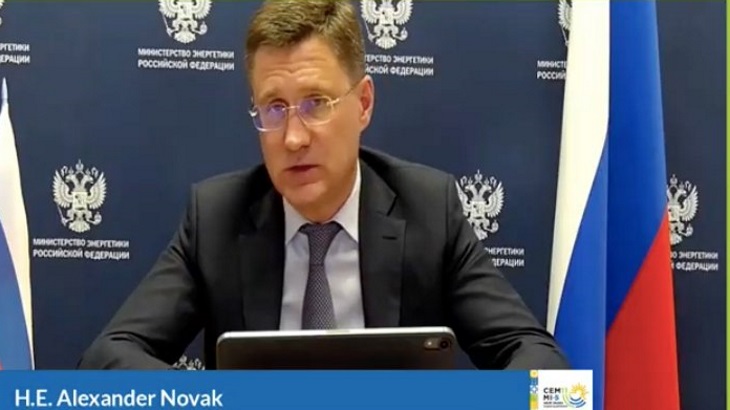Russia has 36 nuclear power units in operation and three new ones under construction. In March, Russia's Ministry for Economic Development published a draft strategy for low-carbon development to 2050. The strategy's basic scenario would see nuclear output grow from 203 TWh in 2017 to 225 TWh in 2030 and 260 TWh in 2050. State nuclear corporation Rosatom’s foreign orders include 36 units, which are at various stages of implementation.
"Despite the shock to the global economy in early 2020 associated with the COVID-19 pandemic, many governments and major energy companies have increased investment in green technologies, as well as tightened emission requirements," Novak said yesterday. "The growth of investments in renewable energy in the first-half of 2020 amounted to 5%, while investments by companies in production and exploration decreased by 20-30%. And we see statements from individual countries that it is planned to achieve carbon neutrality by 2050."
The minister said that large Russian energy companies "keep track of their carbon footprint" and are implementing environmental improvement programmes aimed at raising energy efficiency, increasing the share of natural gas and renewable energy sources, and optimising the use of associated petroleum gas.
"Russia remains a supporter of international efforts to combat climate change, protect the environment and environmental management, ensure universal access to energy and develop clean technologies. We have one of the most diversified energy balances in the world. We have almost all types of energy production. The share of gas is about 46%, nuclear energy - about 19%, coal and hydropower - 18% each," he said.
"Nuclear energy is today considered as an important factor in the formation of environmentally friendly energy. Simultaneously, Russia is actively working on the use of new energy sources, in particular, on the development of renewable energy sources and hydrogen energy, including in cooperation with foreign partners. We are developing our own technologies throughout the entire hydrogen supply chain, and we are also exploring the possibility of using modern technologies for its production. International cooperation is very important for the development of this area."
The prospects for expanding the share of associated petroleum gas, "with the lowest carbon dioxide emission among traditional fuels", he said, are "quite high", including in electricity generation. "This is an affordable, highly environmentally friendly fuel that can quickly reduce the carbon footprint," he said.





_47120.jpg)

_23621.jpg)






